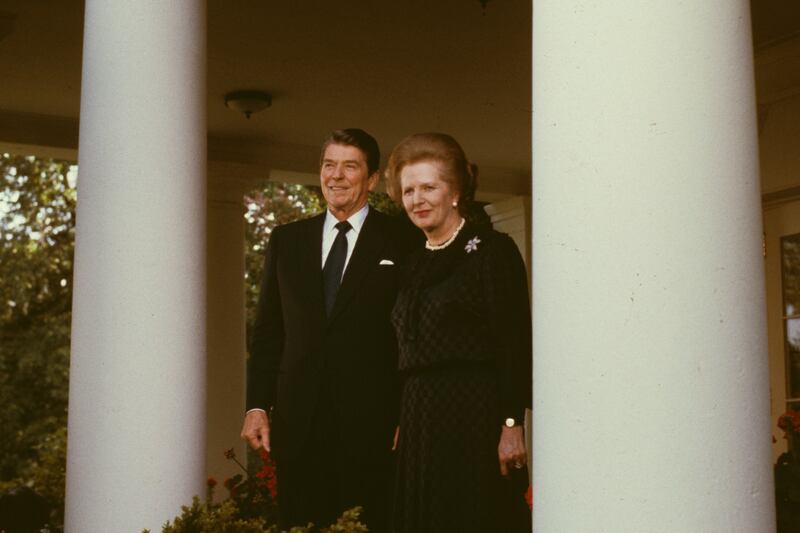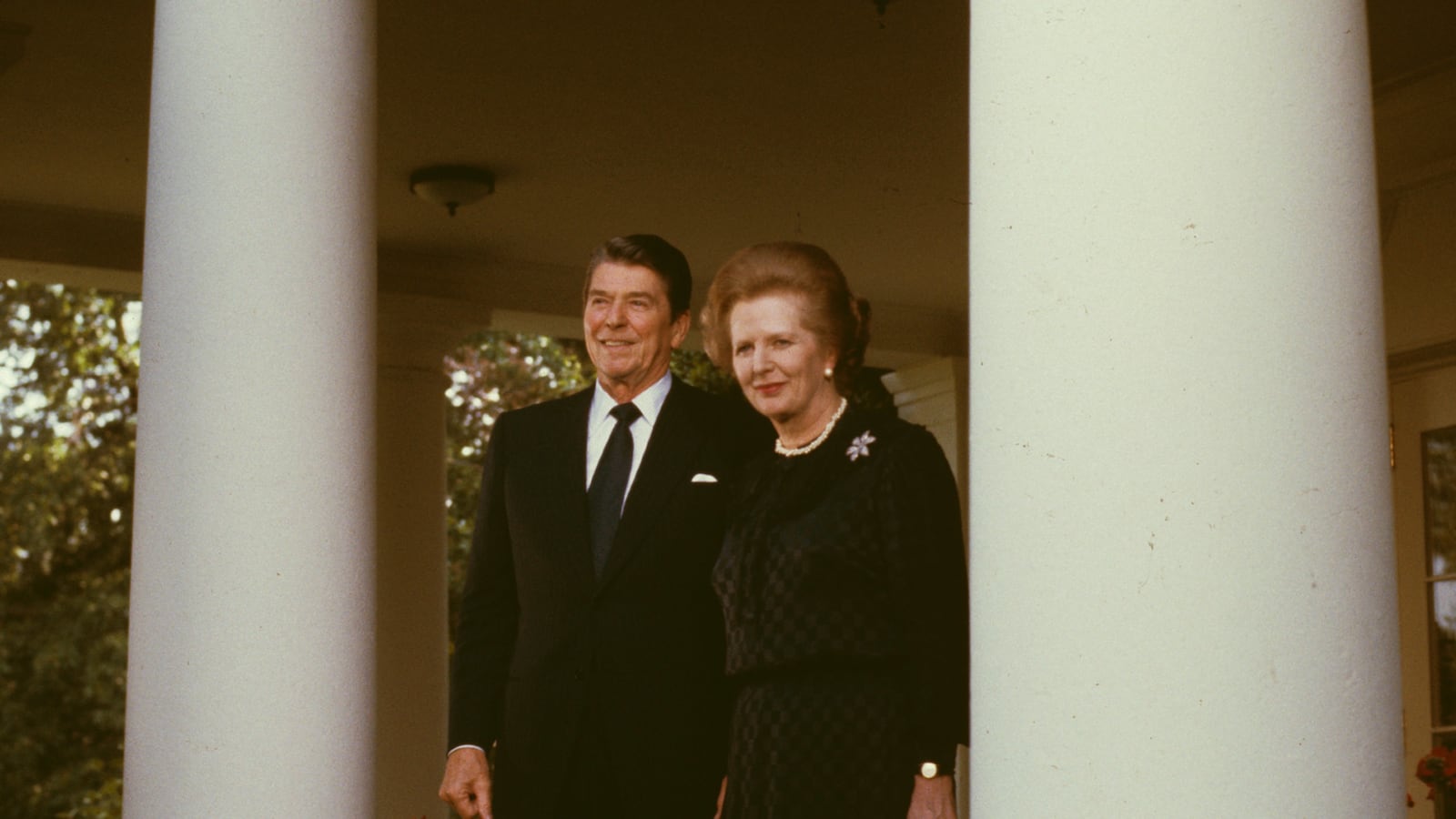As President Reagan’s secretary of State from 1982 to 1989, George Shultz formed his own special bond with British prime minister Margaret Thatcher. As told to Newsweek's William Underhill.
Margaret Thatcher was an agenda politician who also seemed to have an instinct for the process. And that was Ronald Reagan too.

In fact, “ideological soulmates” is a very good description [of their relationship]. I don’t think it was so much that she was pro-American or that the president was pro-British. It is more that they saw the world in similar ways, [particularly] the Cold War and the vitality of Western economies. That meant we could work together very effectively and produce results that were outstanding. Whenever the Reagan administration had any dealings with the Soviet Union or went to Moscow, for example, we always communicated with her directly. And the same was true whenever she went there. We just shared our impressions, our instincts, and our ideas.
She was always alert to what was going on, and her comments were pithy and to the point. She didn’t like mushy things, so you could always count on her to firm things up—which is what we tended to want. When we first met, she took me by the arm and wheeled me up to a room in Chequers [the prime minister’s official residence outside London], and the two of us sat there for a couple of hours on our own exchanging ideas. It was so refreshing. We argued, we talked, and got along just fine. I was able to tell her what was on the president’s mind, and she registered her views with me. I could see she was very confident of herself: she thought things through and she knew what she thought—very much like President Reagan.
Of course, we had our differences. When we came back from [the 1986 U.S.-Soviet summit in] Reykjavik with an agreement that it was desirable to get rid of all nuclear weapons, she came over to Washington, and I was summoned to the British Embassy. It was then that I discovered the meaning of the British expression to be “handbagged.” She said: “George, how could you sit there and allow the president to agree to abolish nuclear weapons?” To which I said: “Margaret, he’s the president.” She replied, “But you’re supposed to be the one with the feet on the ground.” My answer was, “But, Margaret, I agreed with him.” She went on to Camp David, where she told the same to the president—but in softer language.
Although we admired what she did in the Falklands [recaptured by British troops after the Argentine invasion of 1982] and U.S. help was crucial to her winning, we felt that she hung on to the problem for too long, and after a period of time we had to consider our own relationships with South America. She also gave us hell for our invasion of Grenada [a member state of the British Commonwealth] in 1983, but we believed that she was just wrong and that we were right. We had to save the Americans who were on the island.
When it came to the bombing of Libya in the same year, we took her the evidence [of Libyan involvement in terrorism], and as it was absolutely clear-cut, she gave us permission to fly our planes from the bases in Britain. That was in contrast to President Mitterrand, who wouldn’t allow us to overfly France, so the planes had to go a much longer distance.
If you allowed yourself to be intimidated, then she could be intimidating, but she liked people who stood up to her. Otherwise she didn’t have any respect for you. In fact, she was fun to talk to—and fun to argue with. But if you decided to argue with her, then you had better have your arguments in hand. She will be remembered as a strong leader and a person willing to undertake difficult tasks to achieve long-term objectives. That was her trademark.
In 1988 she was the last head of government to come to Washington for a state visit [under President Reagan]. That was deliberate because we admired her so much. I was sent a speech to give [at the secretary of state’s official lunch] about “our two nations” and all that stuff, but I thought I could do better. So I had one of the ladies in my office go shop around for a handbag like the one that she carried, and I put in it seven or eight of her pithy quotes. My toast was, “Margaret, I am proud to award you the first and probably the only Grand Order of the Handbag.” Then I said, “Far be it from me to look in a lady’s handbag, let alone Margaret Thatcher’s, but I’m going to open this one up and see what’s in it.” Then I read out the quotes, and she loved it.





